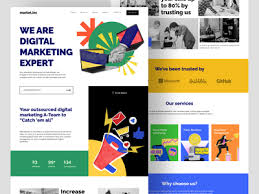The Synergy of Social Media and Content Marketing
Social media and content marketing are two powerful tools that, when combined effectively, can amplify a brand’s reach and engagement with its target audience. In today’s digital age, where online presence is crucial for businesses, understanding the synergy between these two strategies is key to successful marketing campaigns.
Building Brand Awareness
Social media platforms serve as a gateway to connect with a vast audience in real-time. By creating and sharing valuable content on platforms like Facebook, Instagram, Twitter, and LinkedIn, businesses can increase their brand visibility and attract potential customers. Content marketing plays a vital role in this process by providing relevant and engaging material that resonates with the audience.
Driving Traffic to Websites
Content marketing involves creating various types of content such as blog posts, videos, infographics, and more to educate and inform the target audience. By strategically promoting this content on social media channels, businesses can drive traffic to their websites and generate leads. Sharing links to blog articles or product pages on social platforms can direct users to explore more about the brand.
Engaging with Customers
Social media offers a direct line of communication between brands and their customers. By actively engaging with followers through comments, messages, polls, and live sessions, businesses can build relationships and foster loyalty. Content marketing plays a role here by providing valuable information that sparks conversations and encourages interaction among users.
Measuring Success
Analyzing the performance of social media campaigns and content marketing efforts is essential to determine their effectiveness. Metrics such as engagement rates, click-through rates, conversion rates, and social shares provide valuable insights into what resonates with the audience. By tracking these metrics, businesses can refine their strategies for better results.
Conclusion
The integration of social media and content marketing offers a powerful way for brands to connect with their audience authentically. By creating compelling content that is strategically distributed across social platforms, businesses can enhance brand awareness, drive website traffic, engage with customers effectively, and measure the success of their marketing efforts. Embracing this synergy is vital for staying competitive in today’s digital landscape.
Nine Advantages of Social Media and Content Marketing: Boosting Brand Presence and Audience Engagement
- Enhances brand visibility and awareness.
- Drives targeted traffic to websites.
- Facilitates direct engagement with the audience.
- Builds credibility and trust with consumers.
- Allows for real-time communication and feedback.
- Enables precise targeting of specific demographics.
- Boosts lead generation and conversion rates.
- Provides valuable insights through analytics and metrics.
- Fosters creativity in content creation and storytelling.
Navigating the Challenges of Social Media and Content Marketing: Seven Key Drawbacks to Consider
- 1. Information Overload
- 2. Fierce Competition
- 3. Negative Feedback Amplification
- 4. Time-Consuming
- 5. Algorithm Changes
- 6. Privacy Concerns
- 7. Ad Fatigue
Enhances brand visibility and awareness.
One significant advantage of utilising social media and content marketing is the enhancement of brand visibility and awareness. By strategically crafting and sharing engaging content across various social platforms, businesses can effectively reach a wider audience and increase their brand recognition. Consistent presence on social media channels, coupled with valuable content that resonates with the target audience, helps to establish a strong brand identity and foster greater awareness among potential customers. This heightened visibility can lead to increased brand recall and ultimately drive more traffic and engagement towards the business.
Drives targeted traffic to websites.
One significant advantage of utilising social media and content marketing is their ability to drive targeted traffic to websites. By crafting engaging and informative content that resonates with specific audience segments and strategically promoting it on social platforms, businesses can attract relevant visitors to their websites. This targeted approach not only increases the chances of converting visitors into customers but also enhances the overall effectiveness of digital marketing strategies by reaching those most likely to be interested in the products or services offered.
Facilitates direct engagement with the audience.
Facilitating direct engagement with the audience is a significant benefit of utilising social media and content marketing strategies. By actively interacting with followers through comments, messages, polls, and live sessions on various social platforms, businesses can establish a personal connection with their target audience. This direct engagement not only helps in building trust and loyalty but also provides valuable insights into customer preferences and feedback. Through meaningful interactions, brands can tailor their content to better meet the needs and interests of their audience, ultimately strengthening relationships and driving brand growth.
Builds credibility and trust with consumers.
Building credibility and trust with consumers is a significant advantage of utilising social media and content marketing in a cohesive strategy. By consistently delivering valuable and authentic content that resonates with the target audience, businesses can establish themselves as reliable sources of information and expertise. Engaging with customers through meaningful interactions on social platforms fosters a sense of transparency and openness, ultimately strengthening the bond between the brand and its consumers. This trust-building process not only enhances brand loyalty but also encourages positive word-of-mouth recommendations, further solidifying the brand’s reputation in the market.
Allows for real-time communication and feedback.
One significant advantage of utilising social media and content marketing is the ability to engage in real-time communication with the target audience and receive immediate feedback. By leveraging platforms like Twitter, Facebook, and Instagram, businesses can interact with customers swiftly, address queries promptly, and gain valuable insights into consumer preferences and opinions. This instant feedback loop not only enhances customer satisfaction but also enables brands to adapt their strategies quickly based on the responses received, fostering a more dynamic and responsive marketing approach.
Enables precise targeting of specific demographics.
One significant advantage of utilising social media and content marketing is the ability to precisely target specific demographics. By leveraging the detailed user data available on social platforms, businesses can tailor their content to reach audiences based on factors such as age, location, interests, and behaviour. This targeted approach not only increases the relevance of the content but also enhances engagement and conversion rates by delivering messages that resonate with the intended demographic groups.
Boosts lead generation and conversion rates.
One significant advantage of integrating social media and content marketing is their ability to boost lead generation and conversion rates. By strategically leveraging engaging content on social platforms, businesses can attract potential customers and nurture them through the sales funnel. Compelling content that resonates with the target audience not only drives traffic to websites but also encourages users to take desired actions, ultimately leading to increased conversions. This synergy between social media and content marketing proves to be a powerful tool in generating quality leads and improving conversion rates for businesses looking to expand their customer base effectively.
Provides valuable insights through analytics and metrics.
One significant advantage of utilising social media and content marketing is the ability to gain valuable insights through analytics and metrics. By analysing data such as engagement rates, click-through rates, conversion rates, and audience demographics, businesses can understand the effectiveness of their marketing strategies. These insights enable companies to make informed decisions, refine their content approach, and tailor their campaigns to better resonate with their target audience. Ultimately, leveraging analytics and metrics empowers businesses to optimise their social media and content marketing efforts for improved performance and results.
Fosters creativity in content creation and storytelling.
Social media and content marketing serve as catalysts for fostering creativity in content creation and storytelling. Through the dynamic platforms of social media, brands have the opportunity to experiment with various formats, styles, and messaging to engage their audience in innovative ways. Content marketing complements this by providing a structured approach to crafting compelling narratives that resonate with viewers. By encouraging creativity in content creation and storytelling, businesses can differentiate themselves, capture attention, and leave a lasting impact on their target audience in the crowded digital landscape.
1. Information Overload
In the realm of social media and content marketing, one significant drawback is the issue of information overload. The sheer volume of content circulating on social platforms can overwhelm users and dilute the visibility of businesses striving to make an impact. With an abundance of information bombarding audiences daily, standing out amidst the noise becomes increasingly challenging for businesses looking to capture attention and convey their message effectively. This con highlights the importance of crafting targeted, high-quality content that cuts through the clutter to engage and resonate with the intended audience.
2. Fierce Competition
In the realm of social media and content marketing, one significant drawback is the intense competition that arises due to the oversaturation of platforms. With countless brands vying for audience attention and engagement, standing out amidst the noise becomes a daunting challenge. The need to produce compelling and unique content that captures and retains the audience’s interest is amplified in such a competitive landscape. This fierce competition often necessitates innovative strategies and a deep understanding of target demographics to break through the clutter and make a meaningful impact in an overcrowded digital space.
3. Negative Feedback Amplification
In the realm of social media and content marketing, a significant drawback emerges in the form of negative feedback amplification. The interconnected nature of social platforms can magnify criticisms or unfavourable comments, posing a risk to a brand’s reputation. In an instant, a single dissatisfied customer’s feedback can spread rapidly across various channels, potentially tarnishing the image carefully cultivated by a brand. Managing and addressing negative feedback becomes crucial in mitigating the impact on brand perception and maintaining trust among the audience.
4. Time-Consuming
Managing multiple social media accounts and consistently creating high-quality content can be a significant challenge for businesses, consuming valuable time and resources. The demand for regular updates, engaging posts, and strategic content planning across various platforms can often overwhelm marketing teams. This time-consuming aspect of social media and content marketing can divert focus from other essential business activities, highlighting the need for efficient strategies and tools to streamline processes and maximise productivity.
5. Algorithm Changes
One notable drawback of social media and content marketing is the challenge posed by algorithm changes. The ever-evolving nature of social media algorithms can significantly affect the visibility and reach of content. This dynamic environment often demands frequent adjustments to marketing strategies to adapt to the latest algorithm updates. Businesses may find it challenging to maintain consistent engagement with their audience as they navigate through these algorithm changes, highlighting the need for flexibility and agility in their marketing approach to stay relevant in the digital landscape.
6. Privacy Concerns
Privacy concerns related to social media and content marketing are a significant con that cannot be overlooked. With the growing use of social platforms for marketing purposes, there is a heightened risk of data security breaches and the potential misuse of personal information by third parties. Users often express apprehensions about their privacy being compromised, leading to concerns about how their data is collected, stored, and shared without their explicit consent. Addressing these privacy issues is crucial to maintaining trust with audiences and ensuring ethical practices in the digital realm.
7. Ad Fatigue
Ad fatigue, a significant drawback of social media and content marketing, arises from the constant bombardment of advertisements that users encounter on their feeds. The overexposure to promotional content can result in users feeling overwhelmed, disinterested, or even irritated by the sheer volume of ads they come across. This phenomenon diminishes the impact of marketing campaigns as users become desensitised to the messages being conveyed, making it challenging for brands to capture and retain their attention effectively. Ad fatigue underscores the importance of creating engaging and relevant content that resonates with audiences to avoid being perceived as intrusive or repetitive in the digital space.


